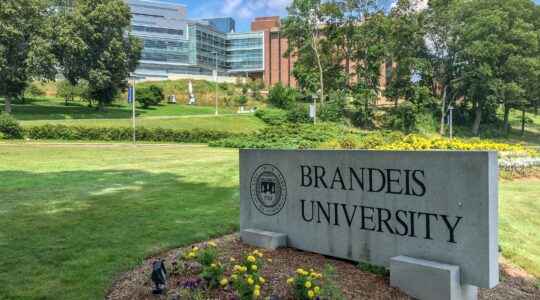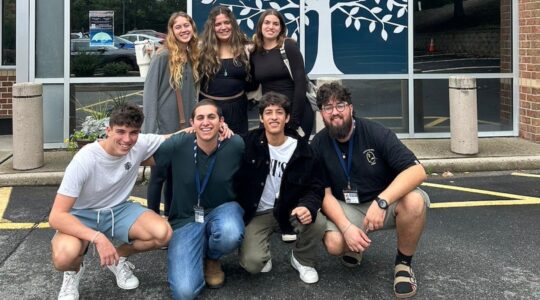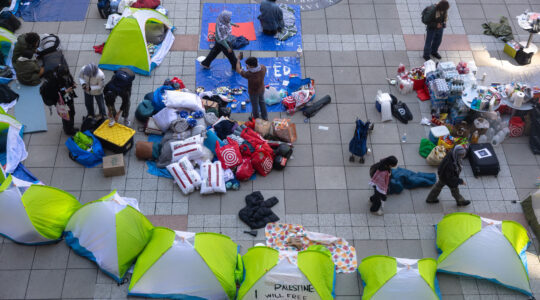(JTA) — A Jewish UCLA student active in Israel advocacy is expected to be named to the University of California Board of Regents following his nomination by a special committee.
Abraham Oved was nominated to the post last month by a special regents board panel, the Los Angeles Times reported.
If Oved’s selection is confirmed by the full board in July, he will join the first Muslim student representative on the board, whose appointment last year sparked controversy over her support of divestment targeting Israel.
The appointment of Sadia Saifuddin, a U.C. Berkeley student government leader who has advocated for the U.C. system to divest from companies doing business with the Israel Defense Forces, opposed by several pro-Israel groups, including StandWithUs and the Simon Wiesenthal Center.
Many others defended her, including some pro-Israel student activists, who said she had a strong track record and had worked to keep the U.C. Berkeley community united during the tense divestment debate on campus.
Saifuddin welcomed Oved’s nomination, calling him “an enthusiastic and capable leader, and an avid learner.”
Oved, whose parents were born in Israel, opposed divestment measures targeting Israel during his time in the UCLA student government.
George Kieffer, the U.C. regent who chairs the panel in charge of selecting student representatives, said religion was not a factor in either appointment.
“We didn’t focus on Sadia as a Muslim student last year, and we didn’t focus on Avi as a Jewish student this year,” Kieffer told the L.A. Times.
Oved said serving with Saifuddin would send a positive message to a U.C. system that has seen the Israeli-Palestinian conflict playing out on campuses with increasing ferocity in the last several years.
“I think it’s an absolutely beautiful statement for U.C. to have a Jewish student and a Muslim student work together regardless of religion or political or cultural differences,” Oved told the L.A. Times, saying they could serve as a sign that other groups could “come together and focus on similarities rather than differences.”





